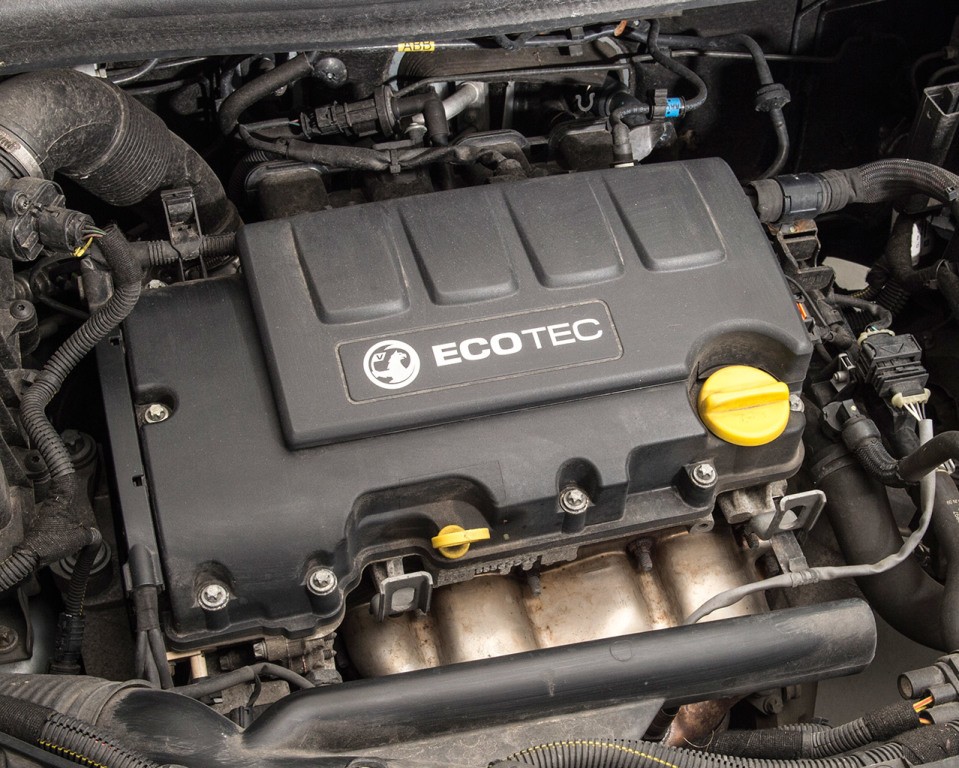Engine Acquiring Specialist Tips on Picking the Right Engine for Your Specific Needs
Choosing the best engine for your specific demands includes a complex interaction of elements that go beyond plain horse power figures. By diving into the intricacies of power versus performance, examining fuel scores, and budgeting for long-term costs, one can truly optimize their engine selection.
Power Vs. Efficiency: Finding the Balance
When picking an engine, it is vital to strike a balance in between power and efficiency to fulfill your particular needs properly. Power describes the engine's ability to create energy for propulsion, establishing elements like velocity, hauling capacity, and general efficiency - Opel Corsa 1.4 Engine Price. On the other hand, effectiveness relates to exactly how well the engine makes use of fuel to create power, impacting aspects such as gas economic climate and ecological friendliness
Accomplishing the appropriate balance in between power and efficiency is necessary due to the fact that an engine that is as well effective might consume extreme gas, leading to higher operating expense and unnecessary strain on the atmosphere. Alternatively, an engine that prioritizes efficiency over power may lead to slow-moving performance, particularly in demanding scenarios like towing hefty tons or driving uphill.
To make a notified choice, take into consideration factors such as your common driving problems, the desired use the vehicle, and your personal preferences. By examining your requirements and concerns, you can choose an engine that strikes the best equilibrium in between power and effectiveness, ensuring optimum performance while minimizing environmental impact and operating costs.
Understanding Engine Size and Type
To further fine-tune the option procedure of an engine that strikes the ideal equilibrium between power and efficiency, it is crucial to explore the details of recognizing engine dimension and type. Engine size refers to the complete quantity of air and fuel that can be pressed through the engine cyndrical tubes. It is normally determined in liters or cubic centimeters. Larger engine sizes usually cause even more power outcome however can also bring about lowered gas effectiveness. On the other hand, smaller engine dimensions are commonly a lot more fuel-efficient but might compromise some power.
Furthermore, engine type plays a crucial role in determining the efficiency qualities of an engine. Usual engine types consist of inline engines, V engines, and rotary engines, each with its special benefits and downsides. The engine type influences elements such as the engine's dimension, weight distribution, and power distribution. Understanding the interaction between engine dimension and kind is important in picking an engine that lines up with your certain needs and top priorities, whether it be power, efficiency, or a additional reading balance of both.

Consider Your Automobile's Demands
If you are looking for an engine for a sturdy truck that will be utilized for towing, you will certainly require a powerful engine with high torque capabilities. On the other hand, if you are choosing an engine for a portable auto primarily utilized for city commuting, gas performance might be an extra critical element hop over to here to consider.
In addition, the surface on which the lorry will primarily operate ought to influence your engine option. If you often drive in mountainous or hilly areas, a robust engine with good climbing power will be needed. Alternatively, for flat surfaces, an extra fuel-efficient engine might be enough. By lining up the engine specifications with your car's demands, you can make certain that your vehicle runs successfully and fulfills your efficiency assumptions.
Examining Fuel Performance Scores
Evaluating fuel efficiency rankings is a crucial facet of choosing the right engine for your automobile, making sure cost financial savings and environmental sustainability. Gas effectiveness ratings, commonly determined in miles per gallon (MPG) for gasoline engines or kilowatt-hours per 100 miles (kWh/100 miles) for electric engines, show how much a car can take a trip on a certain amount of fuel or electrical energy. Higher MPG or lower kWh/100 miles worths represent a blog here lot more efficient engines, equating to minimized gas costs and lower carbon exhausts.
In addition, compare various engine alternatives within the very same vehicle class to identify the most cost-effective option. Aspects such as engine dimension, weight, the rules of aerodynamics, and crossbreed or electrical capabilities can all influence fuel efficiency.
Budgeting for Long-Term Costs
Strategically intending for long-lasting costs is vital when selecting an engine, ensuring financial sustainability over the lorry's life expectancy. While the initial acquisition cost of an engine is a significant variable, it is vital to consider the lasting expenses linked with upkeep, repairs, and gas consumption.
Moreover, investigating the schedule and price of replacement parts for the chosen engine is essential in spending plan planning. By meticulously budgeting for these long-lasting costs and factoring them right into the decision-making procedure, individuals can select an engine that not only satisfies their prompt demands yet also remains affordable throughout its life expectancy.
Final Thought
To conclude, picking the appropriate engine for your details demands calls for stabilizing power and performance, understanding engine size and type, considering your vehicle's demands, examining fuel effectiveness scores, and budgeting for long-lasting costs. By thoroughly thinking about these elements, you can guarantee that you select an engine that satisfies your requirements and offers optimal performance for your lorry.
To further fine-tune the selection process of an engine that strikes the optimum balance in between power and performance, it is vital to dig into the intricacies of recognizing engine size and type. Engine dimension refers to the total quantity of air and fuel that can be pressed through the engine cylinders. Typical engine types consist of inline engines, V engines, and rotary engines, each with its unique benefits and drawbacks. Recognizing the interplay in between engine size and kind is crucial in selecting an engine that straightens with your particular demands and concerns, whether it be power, efficiency, or a balance of both.
